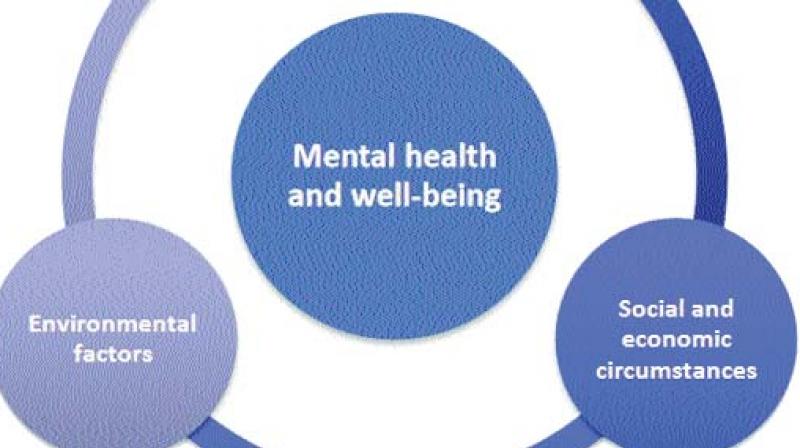The devil in Austerity: Poor most hit by spending cuts

Building physical walls in an interconnected global village is futile. You cannot stop the flow of a river in spate putting up a denim curtain. The water will rush through. If only the money being spent on the wall is spent in tackling poverty in the South!
The world today is a highly interconnected place, a global village, where everyone knows what everyone else is earning and spending. In such an interconnected world, it is impossible to suppress for long the distortions that economic inequalities and social inequities bring in their wake.
The evidence-bas-ed finding of the UN Rapporteur is then a mere reiteration of a very obvious, self-evident and logical truth that we have all known for quite some time, but which of late we have come to ignore.
As the Philadelphia Declaration of the International Labour Organisation — a specialised agency of the UN — stated as long ago as in 1945, “poverty anywhere is a threat to prosperity everywhere”. The meaning and import of the word ‘prosperity’ in the Phila-delphia Declaration is, to my mind, not confined to mere wealth, but equally to health in all its forms: mental, physical, economic, social, political health as well.
Most countries — dictatorial, democratic and these days Fascist — seem to be coming to the unfortunate new-gen thinking that there is something wrong about taxing the rich to support measures for the weak and the marginalised.
Most countries now seem to be veering towards policies that are fondly called austerity measures, which are really about cutting down support to the poor and the disadvantaged. These policies aim at heavy cuts on spending on social welfare, for schemes to end poverty, and funding on health, education and sanitation. Such cuts in public spending are tearing apart social safety nets governments have been putting in place for several decades now.
Even words like ‘welfare’ and ‘social welfare’ have become dirty words in most parts of the world. So dirty, that we have begun to use alternative words like ‘safety nets’ and ‘social safety nets’ instead.
There is also a grave mistake that we all make when we talk of putting in place social safety nets for the poor. We presume from the term, that these are safety nets meant for the poor. Indeed they are. But equally and perhaps even more, these social welfare policies are really safety nets for the rich.
The ILO put it rather decently by saying that poverty anywhere is a threat to prosperity everywhere. But we should not forget that the poor anywhere will always be a threat to the rich everywhere. All revolutions across history were caused by the poor taking umbrage at social and economic inequities.
Even today, note the pressure the US is facing from the huge numbers of the poor from Mexico and countries of Central and South America forcing themselves into the US through the Mexican border. Why, there was a recent report that even a few from India attempted to cross illegally into the US across the Mexican border! Deaths of children in the wake of such crossing are a tragic denouement of lopsided global socio-economic policies.
Building physical walls in an interconnected global village is futile. You cannot stop the flow of a river in spate putting up a denim curtain.
The water will rush through. If only the money being spent on the wall is spent in tackling poverty in the south!
The ILO in 2019 is celebrating the 100th year of its founding. Though a part of the UN, it preceded the UN by a quarter of a century, having been set up in 1919 as a part of the Treaty of Versailles that ended World War I.
Not just mental health, not just health, but the ILO has been arguing that social justice is at the core of every form of health and human endeavour and aspiration. Since the Philadelphia Declaration 75 years ago, the ILO has also been arguing that social justice and human rights are closely interlinked; that there can be no human rights without social justice. The fundamental truth being that lasting peace comes not from growth and development alone, but when such growth and development go hand in hand with social justice and equity for all.
Interestingly, after the UN’s Office in New York, the second largest office of the UN, is situated in Geneva, Switzerland. The world headquarters of the ILO is also in Geneva. Those who have been to Geneva know that both the offices of the UN and the ILO are located very close to one another, and that the Geneva Public Transport buses can take you from the ILO Headquarters to the UN Office in about 5 minutes.
At a time when the UN bodies are accused of working in watertight compartments, without the left hand knowing what the right hand does, it is then good to see that the concept that the ILO has been pushing for a hundred years now that, social justice is a determinant for equity, peace and prosperity and indeed for all forms of social, political, economic and human health, has now travelled across from the ILO to the UN itself!
Ultimately, health and all other aspects of human living are a function of equity and justice. Dr Dainius Puras needn’t have spent so much time and effort on the report. Mahatma Gandhi and our freedom fighters could have told him that self-evident truth, that not only health, but most human functions are a function of equity, equality, justice and human rights.
(The author is a former Indian and UN Civil Servant. He belongs to the 1978 batch of the IAS and worked with the ILO in India and abroad for 20 years. He can becontacted on mpjoseph@hotmail.co.uk.)

